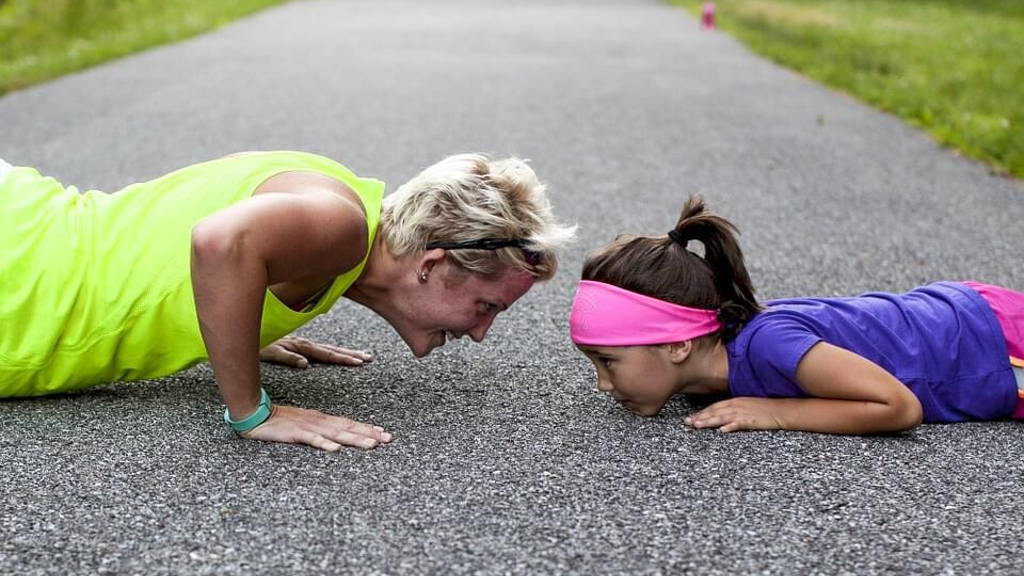People that want to increase their physical activity should grab a buddy and an activity tracker – like a wearable device or smartphone app – that incorporates gaming elements like points and levels (known as gamification) to achieve certain goals. New research shows families who used activity trackers with specially designed gaming elements increased daily step counts by nearly one mile per day and achieved daily fitness goals 27 percent more than families who did not.
Social connections – family members, friends, and even colleagues – can be powerful motivators, but most programs target individuals instead of leveraging these social networks, the study found. Lead author Mitesh Patel, MD, MBA, MS, an assistant professor of Medicine and Health Care Management, and director of Penn Medicine’s Nudge Unit, says the findings demonstrate how gamification can be designed to harness these social influences to improve health behaviors. “Since these relationships are often longstanding, the impact of these interventions has the potential to be long-lasting. For example, our study showed that three months after the game ended, increases in physical activity levels persisted.”
For the first 12 weeks, families randomly assigned to the gamification arm could earn points and progress through levels based on physical activity. The researchers say the gaming elements using principles from behavioral economics including loss aversion and variable rewards and were designed to enhance social incentives including collaboration, accountability and peer support.
During the 12-week intervention period, participants in the gaming arm achieved step goals 27 percent more often than participants in the control arm who did not have gaming elements built into their activity trackers.
At the start of the study period, average baseline step counts were 7,662 and 7,244 for the control and intervention groups, respectively. Over the course of the study period, the control group increased step counts by an overall average of 636 steps, whereas the intervention group increased their overall step counts by an average of 1661 steps - the equivalent of nearly one mile. During the 12-week follow-up period, step counts declined slightly in the gamification arm, but still remained significantly higher than that of the control arm.
The authors say further study is needed to evaluate the approaches tested in the new study among more diverse and high-risk populations, as well as measures of health outcomes and physical activity beyond daily step counts.
Use of behavioural economics in game design
A novel feature of the game, which the researchers say was likely key to the findings, was use of behavioral economics to design the features in a way that would address predictable barriers to increasing physical activity and enhance social incentives. The results of the clinical trial, co-led by researchers at the Perelman School of Medicine at the University of Pennsylvania and Boston University School of Medicine, were published in JAMA Internal Medicine.Social connections – family members, friends, and even colleagues – can be powerful motivators, but most programs target individuals instead of leveraging these social networks, the study found. Lead author Mitesh Patel, MD, MBA, MS, an assistant professor of Medicine and Health Care Management, and director of Penn Medicine’s Nudge Unit, says the findings demonstrate how gamification can be designed to harness these social influences to improve health behaviors. “Since these relationships are often longstanding, the impact of these interventions has the potential to be long-lasting. For example, our study showed that three months after the game ended, increases in physical activity levels persisted.”
About the study
In the study, - the Behavioral Economics Framingham Incentive Trial (BE FIT) - researchers analyzed data from 200 adults comprising 94 families. Participant data came from families enrolled in the Framingham Heart Study. All participants tracked daily step counts using a wearable device or smartphone, established a baseline, set a step goal increase, and received daily feedback on goal performance for 24 weeks.For the first 12 weeks, families randomly assigned to the gamification arm could earn points and progress through levels based on physical activity. The researchers say the gaming elements using principles from behavioral economics including loss aversion and variable rewards and were designed to enhance social incentives including collaboration, accountability and peer support.
During the 12-week intervention period, participants in the gaming arm achieved step goals 27 percent more often than participants in the control arm who did not have gaming elements built into their activity trackers.
At the start of the study period, average baseline step counts were 7,662 and 7,244 for the control and intervention groups, respectively. Over the course of the study period, the control group increased step counts by an overall average of 636 steps, whereas the intervention group increased their overall step counts by an average of 1661 steps - the equivalent of nearly one mile. During the 12-week follow-up period, step counts declined slightly in the gamification arm, but still remained significantly higher than that of the control arm.
Engaging families increases physical activity
“While many are hopeful that digital health interventions can increase healthy behaviors, there have been few clinical trials demonstrating meaningful differences in community settings,” said senior author Joanne Murabito, MD, ScM, research center director of the Framingham Heart Study and an associate professor of Medicine at the Boston University School of Medicine. “By engaging families in an interactive game-based intervention using activity trackers, we found significant increases in physical activity. This approach is exciting because it has the potential to be scaled more broadly.”The authors say further study is needed to evaluate the approaches tested in the new study among more diverse and high-risk populations, as well as measures of health outcomes and physical activity beyond daily step counts.






